'I will die as an artist' – Paralympian Toh Wei Soong takes creative flight beyond the pool
For years, Toh Wei Soong raced for medals in the public eye while honing his artistry in private. Now he reflects on how the challenges of being an elite athlete have shaped his identity and creative pursuits.
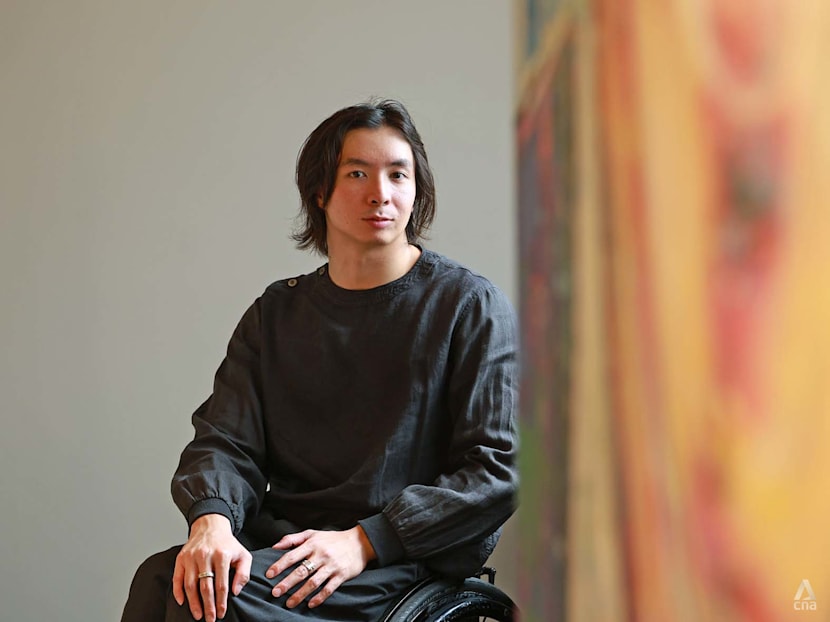
Despite being best known as a Paralympic swimmer, Toh Wei Soong identifies first and foremost as an artist. (Photo: CNA/Raj Nadarajan)

This audio is generated by an AI tool.
For most of his life, Toh Wei Soong has been defined by the water.
The 27-year-old Paralympic swimmer has made waves in pools all over the world, medalling – often multiple times – at major international sports events such as the Commonwealth Games, Asian Para Games and ASEAN Para Games.
Among his standout achievements are three gold medals at the 2023 Asian Para Games in Hangzhou, China, and he has competed at two Paralympic Games – in Tokyo, Japan in 2021 and Paris, France in 2024.
After 13 years representing Singapore as a para-athlete, Toh has become a veteran of self-presentation – calm, serious and measured in his speech. But every so often, a deadpan quip or understated joke shows his sharp wit and warm affability.
After a pensive conversation, I asked what most people wouldn't know about him. He paused. And then, completely flatly, he said: "I have a wicked sense of humour."
Behind his well-manicured demeanour, he was straightforward and frank about both the privileges and sacrifices that his athletic journey has afforded and demanded of him.
"I've lived an irregular life since secondary school," he said. "I gave up a lot of things my friends were enjoying, such as opportunities to travel or work overseas.
"But it's rare, and in many ways special. It's the life that made me who I am today."
Despite his achievements and reputation as a para-athlete, just a few minutes with Toh made it clear that sport is only part of his story.
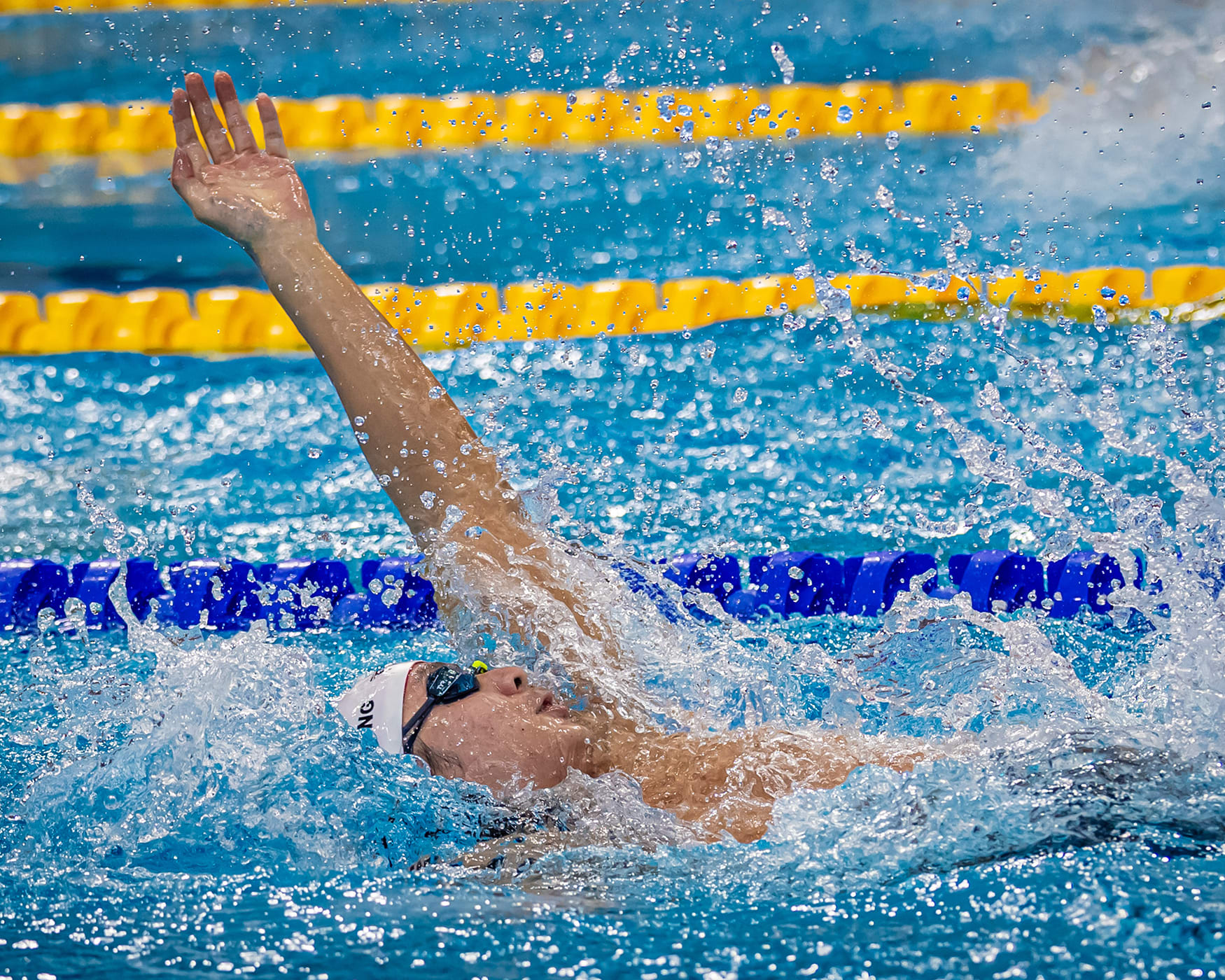
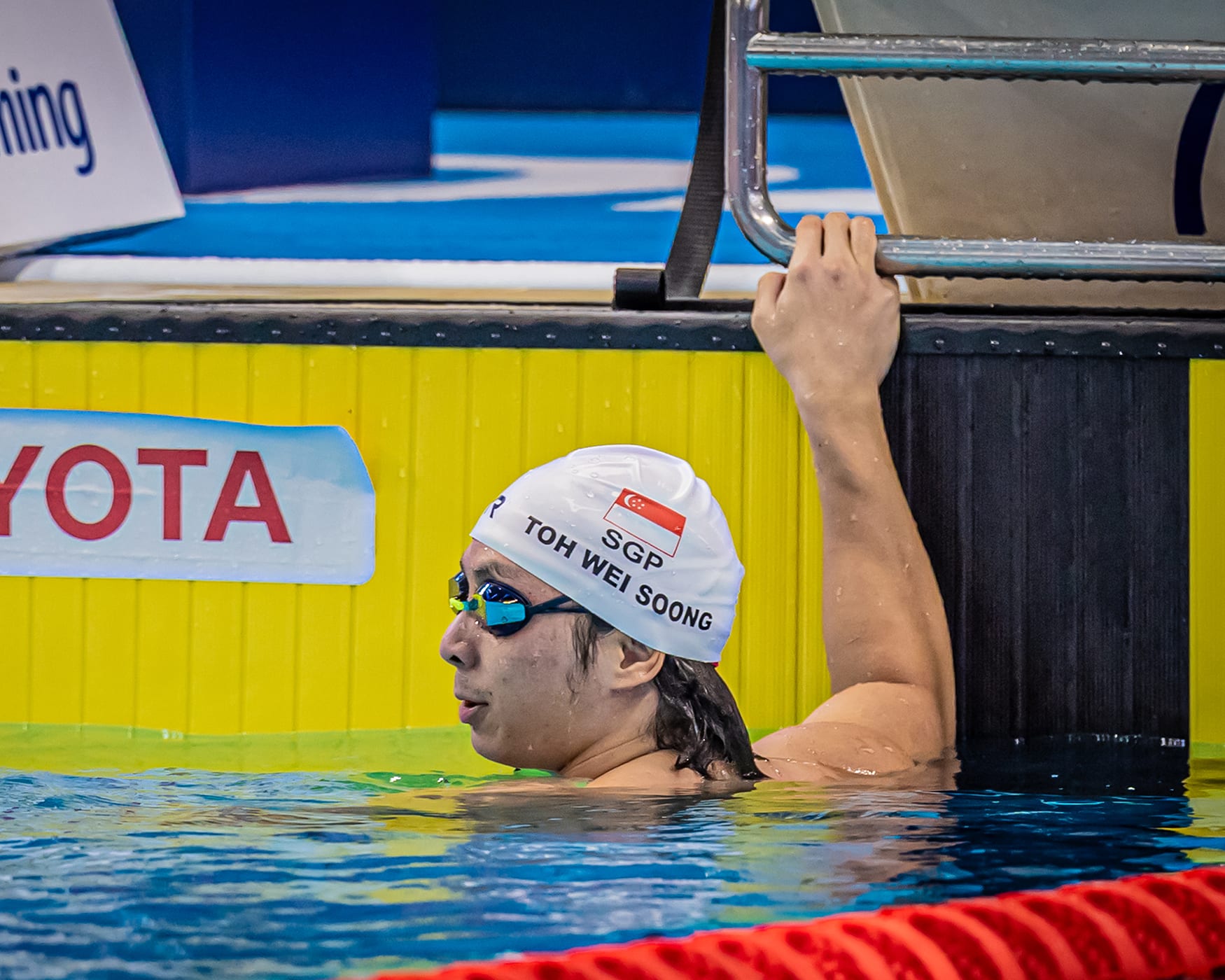
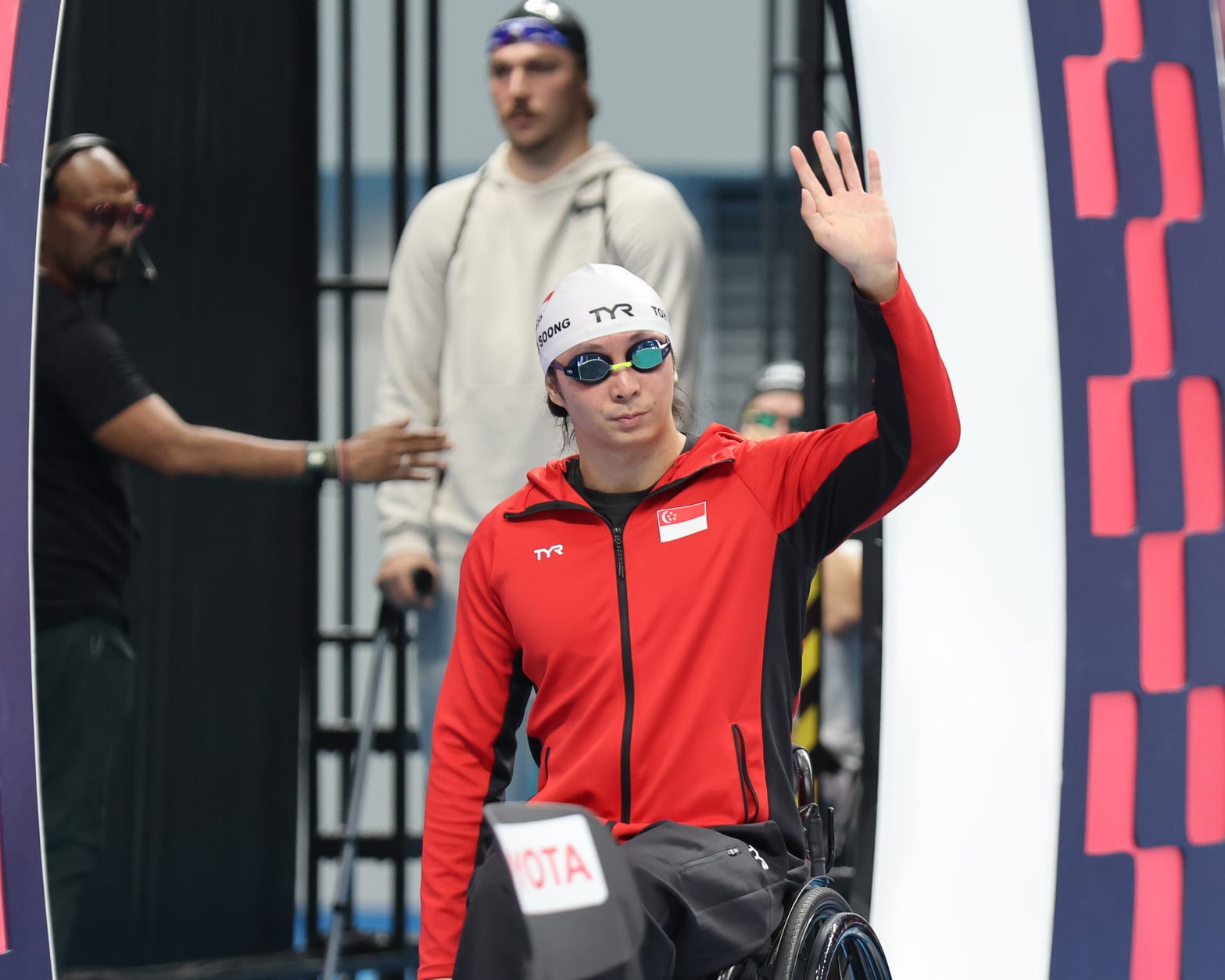
SWIMMING AS A SOCIAL EQUALISER
The pool has long been a formative space for Toh.
At two years old, Toh was diagnosed with transverse myelitis, a rare neurological condition affecting his lower spinal cord. Since then, he has largely relied on a wheelchair or crutches for mobility.
Four years later, he was introduced to swimming as a form of rehabilitation – the start of a lifelong relationship with the water that would shape both his personal and public identity.
Later, as a student at Anglo-Chinese School (Independent), he struggled to find a sense of belonging.
"For a kid who can't play soccer, can't do much in PE (physical education) class and has to take a different route to get to the same areas as everyone else in school – whether by lift or ramp – there's a sense of alienation or difference you feel growing up," he said.
Joining the school's swimming team at the age of 14 meant far more than just participation in a co-curricular activity.
In the pool, sheer effort and meticulously-honed skill gave him an opportunity to be recognised for his body's capabilities. For the first time, as he put it, he could “stand toe to toe” with his peers.
"All those years of missing out on PE, missing out on recess games, were no longer relevant. That recognition is important to someone who grew up feeling very different."
THE DARK SIDE OF EXCELLING
However, the pressures of excelling both in the pool and academic life came with a hidden cost: a persistent, often private struggle with depression.
Even as a teen, he was driven by an unrelenting desire to excel, often at the expense of balance.
A typical school day saw him up at 5am for swim practice before heading to class at 7.30am and then returning to the pool in the late afternoon. His rigorous training schedule meant rest and recovery took priority over everything else.
The same drive that fuelled his success in the pool left little room for life beyond it. Homework, video games, hanging out with friends – everything that wasn't swimming got sidelined.
Even in moments when he simply couldn't handle it all, he blamed himself and kept pushing forward.
True to form, during our interview even the most personal of Toh's struggles were recounted in his deliberate manner, with unflinching precision and honesty.
"I suffered as a result of my own ambition for many years... it's not a life I would wish on anybody," he confessed.
He pulled through the most gruelling stretches by drawing strength from family, friends and creative pursuits.
Looking back, Toh acknowledged that it may not have been entirely healthy to have pushed himself as hard as he did – or to think that self-belief alone would be enough for him to power through the pressure.
"It might have been wiser and kinder to myself if I had spaced things out a bit more and not tried to conquer everything," he reflected.
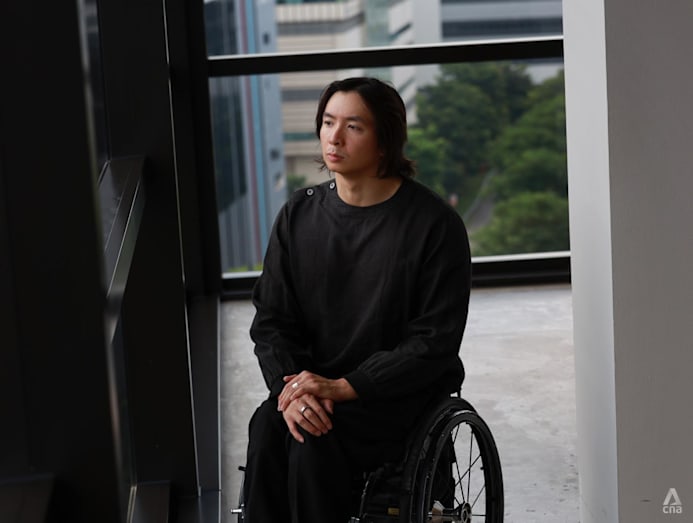
THE SEARCH FOR IDENTITY
Listening to Toh describe a life structured around exacting standards of discipline since childhood, I wondered: How could someone with endless training sessions, drills and races on his calendar possibly "find" himself outside of the water?
Among elite athletes, though, Toh might be somewhat of an anomaly. When it comes to the question of "Who am I outside of sports?", he seems to have endless answers.
For one thing, he’s a voracious reader. Our conversation was liberally punctuated with literary and philosophical references – from Plato to Ludwig Wittgenstein – many of which went right over my head.
He told me that he has always devoured news media and literature in search of perspectives that could challenge him or open his eyes to another way of living.
Growing up with a physical disability that caused his body to develop differently from other children may have prompted him to seek out ways to mature his mind more quickly, he observed.
"It’s a way of compensating for the things you can't fully participate in or empathise with – things that, to your peers, come as second nature."
His search for clarity and authenticity led him to study philosophy, political science and economics at the National University of Singapore, graduating last year.
But sometimes, that same search took him to strange places. Frustrated by how some creative fiction tends to humanise animals, he once wrote a novel from a rat’s point of view.
How did that experiment turn out, you may wonder?
"A rat is a rat," he said matter-of-factly – and that was that.
CREATIVITY AS A CONSTANT
When we met again at a wheelchair servicing workshop in Ubi, our conversation quickly turned to art.
It was like flicking on a light bulb – Toh instantly sat up straighter, his face brightening and voice quickening. It was as if he'd been just waiting for the chance to talk about something beyond the pool.
"I've always been an artist first," he said.
This may come as a surprise to some, but it's practically in his blood: His grandmother was a prolific calligrapher, his great-grandfather a patron of the arts, and his father a modernist architect.
As a child, Toh spent years practising Chinese painting and performing self-authored plays for his parents. He went on to play the clarinet and saxophone in secondary school, and dabbled in filmmaking with friends.
Phone cameras were a far cry from what they are now, so Toh and his friends had to scrounge cameras from whomever was willing to lend them one. Some of his fondest memories include shooting scenes in dusty, unoccupied public flats and cleaning up fake blood by the pool.
In 2019, at the age of 21, he directed his first feature-length documentary – The Lives of Farrer Park, which tells the story of the area's sporting history ahead of its redevelopment. Having trained at the now-demolished Farrer Park Swimming Complex since he was 14, he felt a responsibility to capture the stories of the place.
He spent 11 weeks meeting with and filming interviews with athletes, historians, civil servants and longtime locals with deep ties to Farrer Park, all while teaching himself the many skills of documentary filmmaking.
He’s also a prolific writer, having started ONZ, a street fashion magazine, and contributed to Ortus, a multimedia journal focused on philosophical essays, short stories and other writing. He taught himself InDesign, the desktop publishing software, to produce both projects.
His writing extends to fiction: a few short stories, the 40,000-word novella about the rat, and a full-length novel that has been years in the making.
These were not just exercises in craft. At the heart of these impressively varied pursuits lies a clear, unwavering motivation.
"Everything I do is about understanding myself," he said. "I make art to create mirrors.
"Who am I when I act, write a novella, or make a short film? I want to see myself in many different contexts."
MAKING FASHION WORK FOR EVERYONE
In recent years, Toh has turned his attention to design, particularly in adaptive fashion – something he's had no formal training in, but finds himself increasingly drawn to.
Earlier this year, he teamed up with Werable, a local inclusive fashion brand, to co-design a sling bag that balances style and accessibility. In 2024, he collaborated with Toyota on an inclusive fashion showcase that explored mobility and design from new perspectives.
He credited Werable founder Claudia Poh in particular with guiding his first steps in the world of design and helping him bring ideas to life.
"Even seemingly simple decisions, like buying fabric, can be challenging when you lack the experience to imagine it fully," he said.
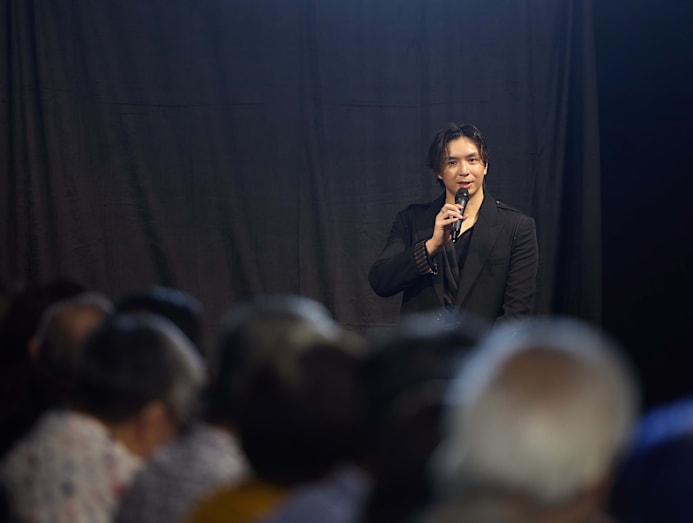
Central to these projects was the same commitment to authenticity that has been the core of his other creative pursuits.
Toh is adamant that clothes – and other creative works – should speak for themselves, and inclusivity should avoid performative gestures.
"I've seen many fashion presentations featuring disabled models, but too often they feel on-the-nose, putting difference before the person," he said. He prefers models to be "models first, disabled second".
His latest challenge: Building on existing creations, in a collaboration with fashion brand Pedro.
This partnership saw him painting directly on the brand's designs and products, a process he found both exciting and daunting.
"A canvas is completely blank, but a product already has its own identity and intention. I was hesitant to override that unless I had something meaningful to contribute," he said.
"I wanted to respect the team's vision while finding a way to create something new together."
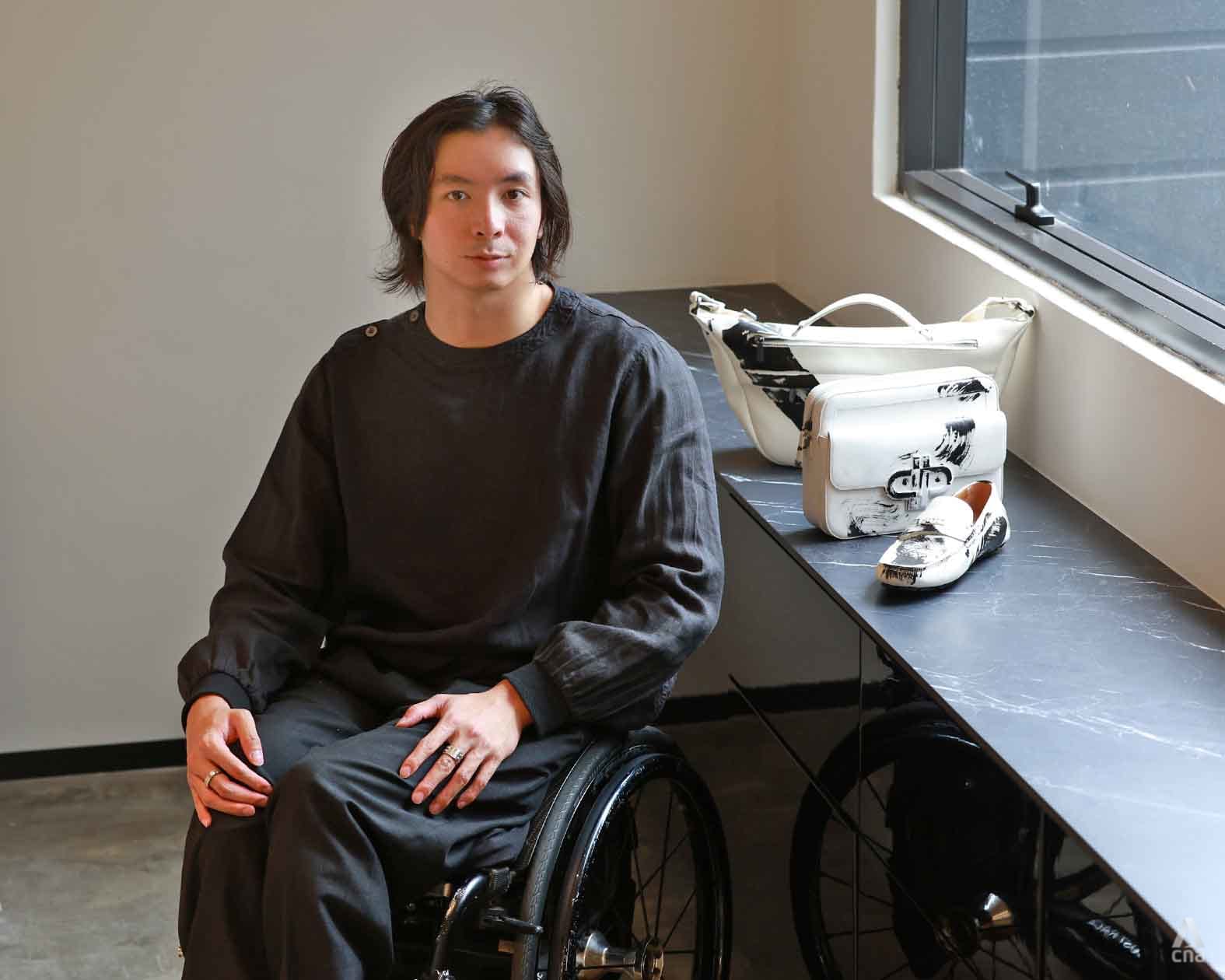
CARVING OUT HIS OWN LANE
Currently, Toh is honing his design and production knowledge in preparation for launching his own label.
He recalled a chance encounter with the late Singaporean fashion designer Laichan Goh at his store in Mandarin Gallery, an hour-long chat that left a lasting impression.
Goh encouraged him to enter the fashion industry with eyes wide open, acknowledging its challenges while affirming that with dedication, creating beautiful work was possible.
"To hear that from someone with his experience was something I really valued," Toh said.
Even as his pursuits out of the pool pick up steam, swimming seems set to remain a steady aspect of Toh's life – one he now approaches with a stronger sense of self-assurance.
"I've reached a level of experience where I'm comfortable with myself," he said.
While some have already begun prodding him about the 2028 Summer Paralympics in Los Angeles, he chooses to see the world's biggest sporting event not as a fixed endpoint in his sights but rather a milestone he's keeping loosely in view.
In fact, he's somewhat superstitious about leaning so heavily on a definitive timeline for the games. Fixating on it does not make him a better athlete, he said – a sentiment 15-year-old Wei Soong might have balked at.
"I don't know what the future will be," he said plainly. "But whatever it is, I will make any decision based on what is true and right for me."
While Toh isn't entirely sure about the next few laps of his life, he is remarkably clear-eyed about the legacy he wants to leave.
"As much as I enjoy (sports), I have a strong feeling – even a prediction – that I will die as an artist rather than as an athlete."














